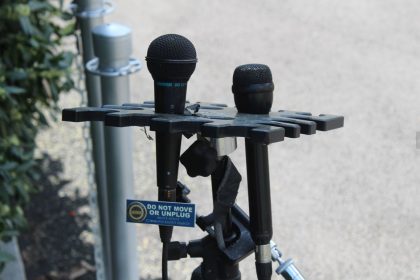Bill to Protect Local Media on Internet Halted by Senate Critics

WASHINGTON — A Senate committee put a bill that would give journalism outlets a bigger share of the profits reaped by platforms like Facebook and Google on hold Thursday at the last moment.
The Senate Judiciary Committee was marking up the bill when Sen. Ted Cruz, R-Texas, inserted an amendment that could give tech companies more leverage in contract negotiations.
Sen. Amy Klobuchar, D-Minn., the lead sponsor of the bill, then halted the markup vote but said it will continue at a later date. A markup – or approval – by a committee is required before a bill gets forwarded to the full Senate for a vote.
The bill would allow small to mid-sized journalism companies to bargain collectively with the platforms before they could republish their news stories and photos.
The current news distribution arrangement requires separate boilerplate contracts with each news outlet.
The news organizations complain the result is they rarely get paid for their republished stories and photos. Instead, Facebook and Google keep the advertising revenue other publishers create.
Debate over the bill underscores a desire by some members of Congress to rein in the power tech companies wield over the internet. The companies’ discretion includes choices on which news they put in front of internet viewers.
The Journalism Competition and Preservation Act is supposed to give news outlets more input into the internet platforms’ decisions. It also is supposed to shore up the finances of a news business whose paying subscribers are fleeing to the free content they can find with internet searches.
The bill, S. 673, creates an antitrust exemption for companies with fewer than 1,500 employees to allow them to bargain collectively. The largest media organizations, like The New York Times and Wall Street Journal, could not participate.
“This bill is about protecting local journalism by leveling the playing field and allowing local news outlets to band together to negotiate for fair compensation from tech platforms,” Klobuchar said in a statement.
After two hours of discussion during a Judiciary Committee business meeting, Cruz introduced an amendment to keep the antitrust restrictions Klobuchar wanted to modify.
Cruz said he was concerned that allowing news outlets to negotiate the content published on the Internet might allow them to censor some of it. His concern reflected Republican beliefs that internet platforms sometimes censor conservative viewpoints.
If they were trying only to ensure they get a bigger part of the ad revenue, Cruz said he would not object to the Journalism Competition and Preservation Act.
Cruz’s amendment won approval by an 11-to-10 margin along party lines. Klobuchar responded by withdrawing the entire bill from further consideration by the Judiciary Committee.
She said she would resubmit it for the committee’s approval later but only after it was revised to gain bipartisan support.
Cruz said afterward, “What happened today was a huge victory for the First Amendment and free speech. Sadly, it is also a case study in how much the Democrats love censorship. They would rather pull their bill entirely than advance it with my proposed protections for Americans from unfair online censorship.”
Even within the field of journalism the bill is evoking mixed feelings.
Its supporters include the powerful trade organizations News Media Alliance and the National Association of Broadcasters.
During a Senate Judiciary Antitrust Subcommittee hearing on the bill in February, all-news WTOP-FM Washington General Manager Joel Oxley said stations like his are trapped in a “Catch 22” by their redistribution contracts with Facebook and Google.
They need to be accessible through the internet platforms to attract online traffic but they are not compensated for their content, he said.
“The dominant online platforms have flourished, siphoning off huge amounts of advertising revenues that are the lifeblood of free, local journalism,” said Oxley.
Some conservative public interest groups are skeptical of claims the Journalism Competition and Preservation Act would protect local media.
Public Knowledge, Common Cause and Consumer Reports joined in a letter to key senators saying the bill “favors big broadcasters such as News Corp, Sinclair, iHeart and Comcast/NBCU over any other form of journalism, and it undermines the stated goal of helping local news.”
Tom can be reached at [email protected] or on Twitter at @ tramstack.
























